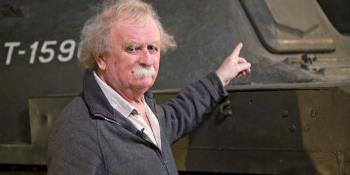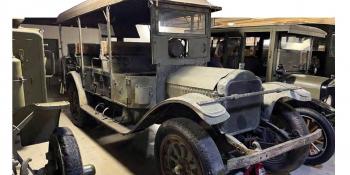Hundreds of London buses were requisitioned and sent to the front to transport troops during World War One
words Tim Gosling pictures archive
For its inhabitants and visitors alike, one of the most iconic images of London is that of a red double decker bus. The first omnibus service (albeit horse-drawn) was introduced into London in 1829, with a steam-powered bus being introduced the following year. Harsh legislation kept the steam bus off the road until 1896 but experiments with petrol engines enabled the introduction of motor buses.
In 1904 the London General Omnibus Company (LGOC) bought their first steam bus (a Clarkson) and the following year their first motor bus, a De Dion-Bouton which was followed by others built by Bussing, Milnes-Daimler, Straker-Squire and Wolseley. Other bus companies were quick to buy motor buses and in 1914 the last horsedrawn bus was withdrawn.
The origins of LGOC go back to 1855 when the company Compagnie Generale de Londres was formed to run the London bus routes. This name was soon changed to London General Omnibus Company and, following a period of aggressive expansion by taking over its competitors, LGOC was soon the largest bus operator in London.
With the challenge…




